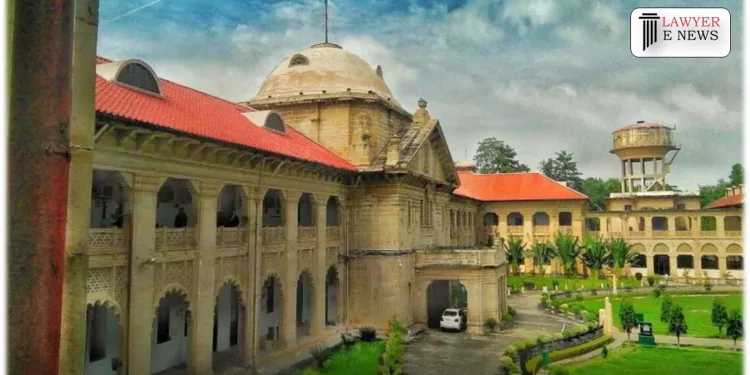Lack of Judicial Application and Evidence: Allahabad High Court Quashes Summoning Orders in Accidental Death Case

Judicial Missteps and Absence of Intent Highlighted in Case of Accidental Death Due to Wall Demolition
The High Court of Judicature at Allahabad, Lucknow Bench, quashed the summoning and cognizance orders in the case against Vivek Singh @ Monu and Mohd. Danish @ Mohd. Danish Azad concerning the accidental death of Harinand Jaiswal. The bench, led by Justice Shamim Ahmed, underscored the absence of intent to cause death and procedural lapses in the lower court’s handling of the case, emphasizing the need for thorough judicial scrutiny and reasoning.
The case stems from an incident on December 2, 2014, where a boundary wall demolition at the Old Employment Office in Charbagh, Lucknow, led to a peepal tree falling and fatally injuring Harinand Jaiswal. An FIR was lodged by Constable Govind Narain against Prabhat Agarwal and 5-6 unknown persons under Section 304 IPC and Section 3 of the Prevention of Damage to Public Property Act. Vivek Singh and Mohd. Danish were implicated later based on a delayed statement by the deceased’s daughter, Renu Jaiswal.
Absence of Intent to Cause Death: Justice Ahmed noted the lack of evidence indicating that the applicants intended to cause death or had knowledge that their actions would likely result in death. “The demolition leading to the accidental death does not meet the criteria for culpable homicide,” he stated. The court observed that the falling of the tree was an unforeseen consequence of the demolition work, categorizing the incident as an accident rather than a culpable homicide.
Procedural Irregularities: The court found significant procedural lapses in the orders issued by the learned Chief Judicial Magistrate, Lucknow. Justice Ahmed emphasized the magistrate’s failure to apply judicial mind and provide detailed reasoning in the summoning orders. “Summoning orders without detailed reasoning or assessment of prima facie case are liable to be quashed,” the judgment asserted, citing the necessity for careful scrutiny of allegations and evidence before issuing summons.
Witness Testimonies and Evidence: The court scrutinized the discrepancies in witness testimonies, particularly the delayed and inconsistent statements of the deceased’s daughter, Renu Jaiswal. “The daughter of the deceased, residing in a different town, cannot be considered an eyewitness to the alleged incident,” Justice Ahmed remarked. The court highlighted the lack of direct evidence implicating the applicants and the contradictions in the statements recorded under Section 161 Cr.P.C.
The judgment extensively discussed the legal principles concerning the issuance of summoning orders and the need for judicial application of mind. “The order of issuance of process is not an empty formality,” the court reiterated, referencing the Supreme Court’s observations in similar cases. The High Court emphasized that the learned Chief Judicial Magistrate, Lucknow, failed to scrutinize the nature of allegations and the evidence, leading to a miscarriage of justice.
Justice Shamim Ahmed remarked, “The summoning order dated 30.03.2016, along with consequential orders dated 11.01.2018 and 11.07.2018, lacks necessary legal and factual foundation. The applicants have been wrongfully implicated without substantial evidence.”
The High Court’s decision to quash the summoning and cognizance orders in this case underscores the judiciary’s commitment to preventing misuse of legal procedures and ensuring justice. By highlighting the absence of intent and procedural irregularities, the judgment sets a precedent for careful judicial scrutiny in similar cases. The ruling reinforces the importance of detailed reasoning and proper application of mind in judicial orders, safeguarding individuals from wrongful prosecution.
Date of Decision: 31st May 2024
Vivek Singh @ Monu and Another vs. State of U.P. and Another






